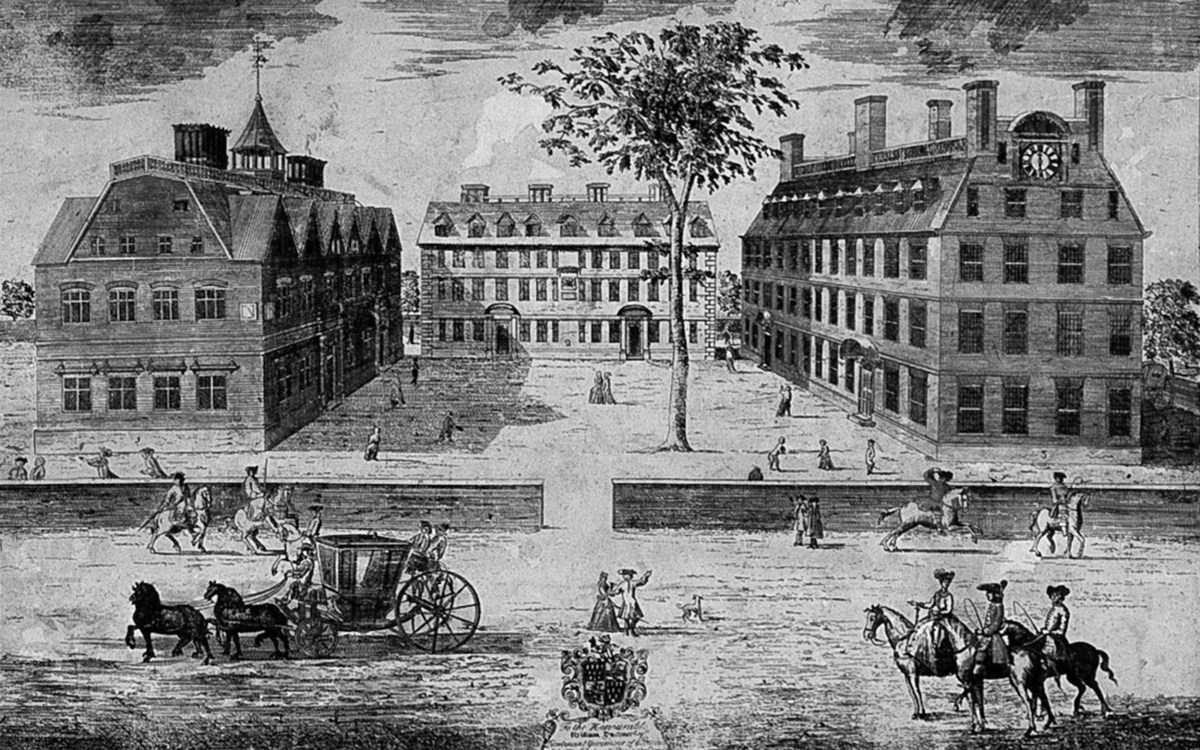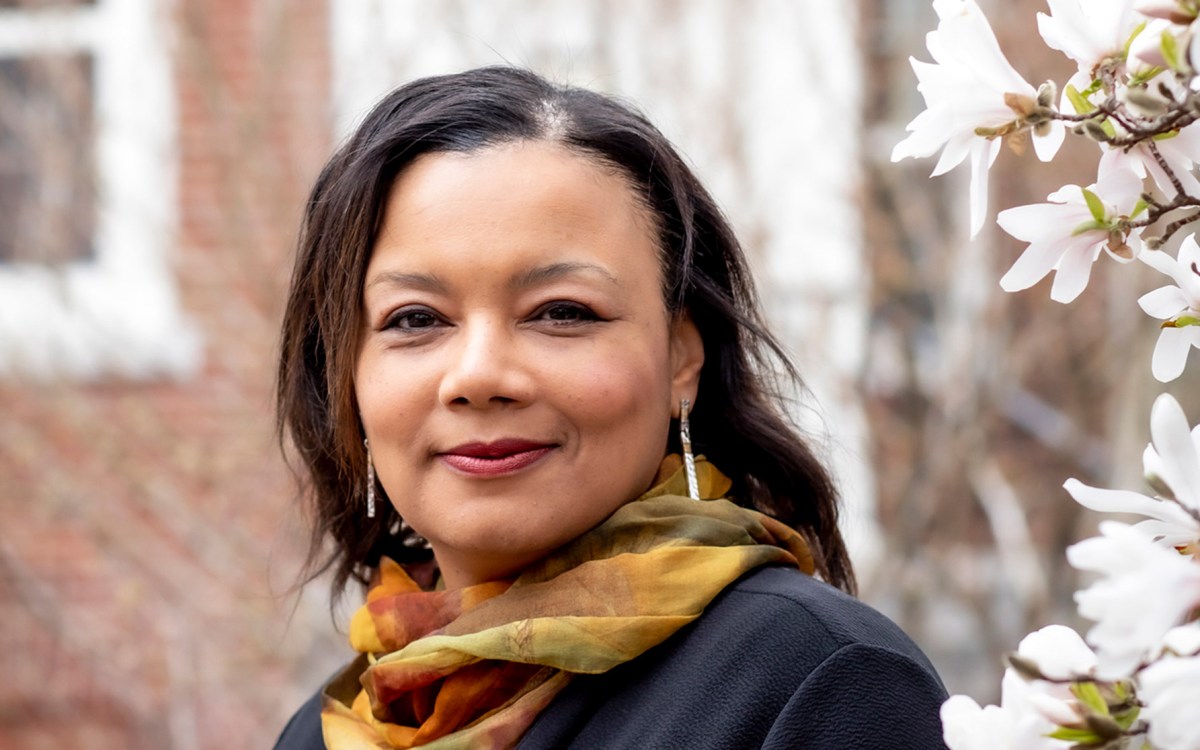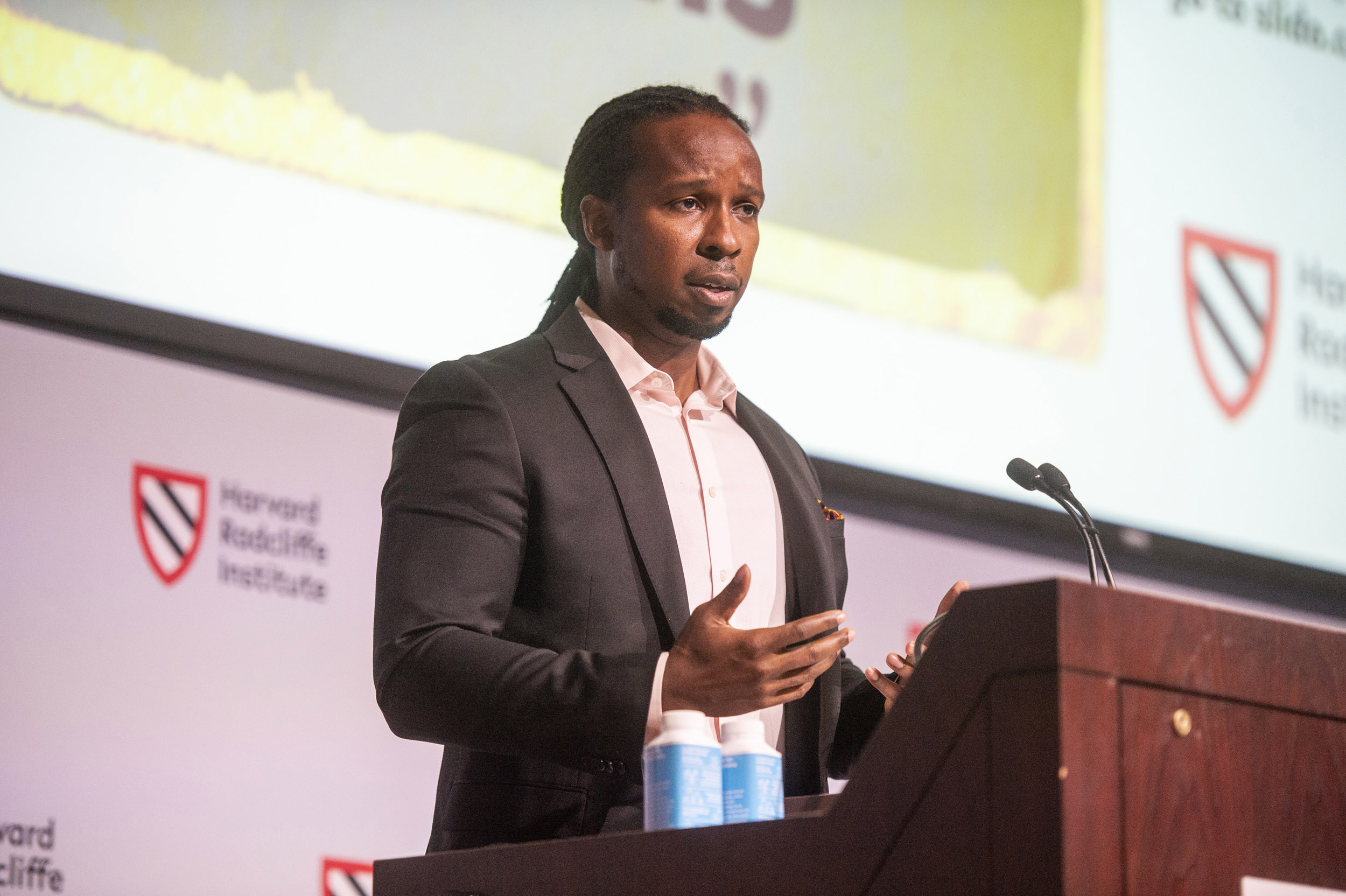
Keynote speaker Ibram X. Kendi applauded the members of the Presidential Committee on Harvard and the Legacy of Slavery, whose report documents both the history of slavery on campus and how wealth derived from the practice provided critical support for the University’s rise to prominence in the decades before the Civil War.
Jon Chase/Harvard Staff Photographer
One lie leads to another until we tell the truth
Kendi, Simmons welcome Harvard report on ties to slavery as step toward wider reckoning with ‘massive moral ill’
The legacy of U.S. slavery is defined by more than just brutal discrimination, stolen lives, and the enrichment of a few on the backs of many — it’s also a narrative of half-truths, historical omissions, and outright lies that hides America’s true past, perpetuating a “freedom and equality” myth that the nation is still struggling to live up to.
That was the message delivered Friday by Ibram X. Kendi, a professor at Boston University and director of the school’s Center for Antiracist Research, at the Harvard Radcliffe Institute conference “Telling the Truth About All This: Reckoning with Slavery and Its Legacies at Harvard and Beyond.” Kendi, the acclaimed author of “How to Be an Antiracist” and the National Book Award-winning “Stamped from the Beginning,” said that higher education was complicit in manufacturing and promulgating lies that enabled slavery and that the residual effects can be seen today in falsehoods about voter suppression, textbooks, gun control, and climate change.
“We are living in times when some people are constantly calling what is obviously harmful positively good,” he said. “They are lying and saying fossil fuels are positively good for the environment. They are lying and saying banning books is positively good for young readers. They are lying and saying police and prisons are positively good for Black, brown, and Indigenous communities…. And they are lying and saying that ignoring the legacy of slavery at Harvard is positively good for Harvard. They are lying and saying that ignoring the legacy of slavery in the United States is positively good for the United States.”
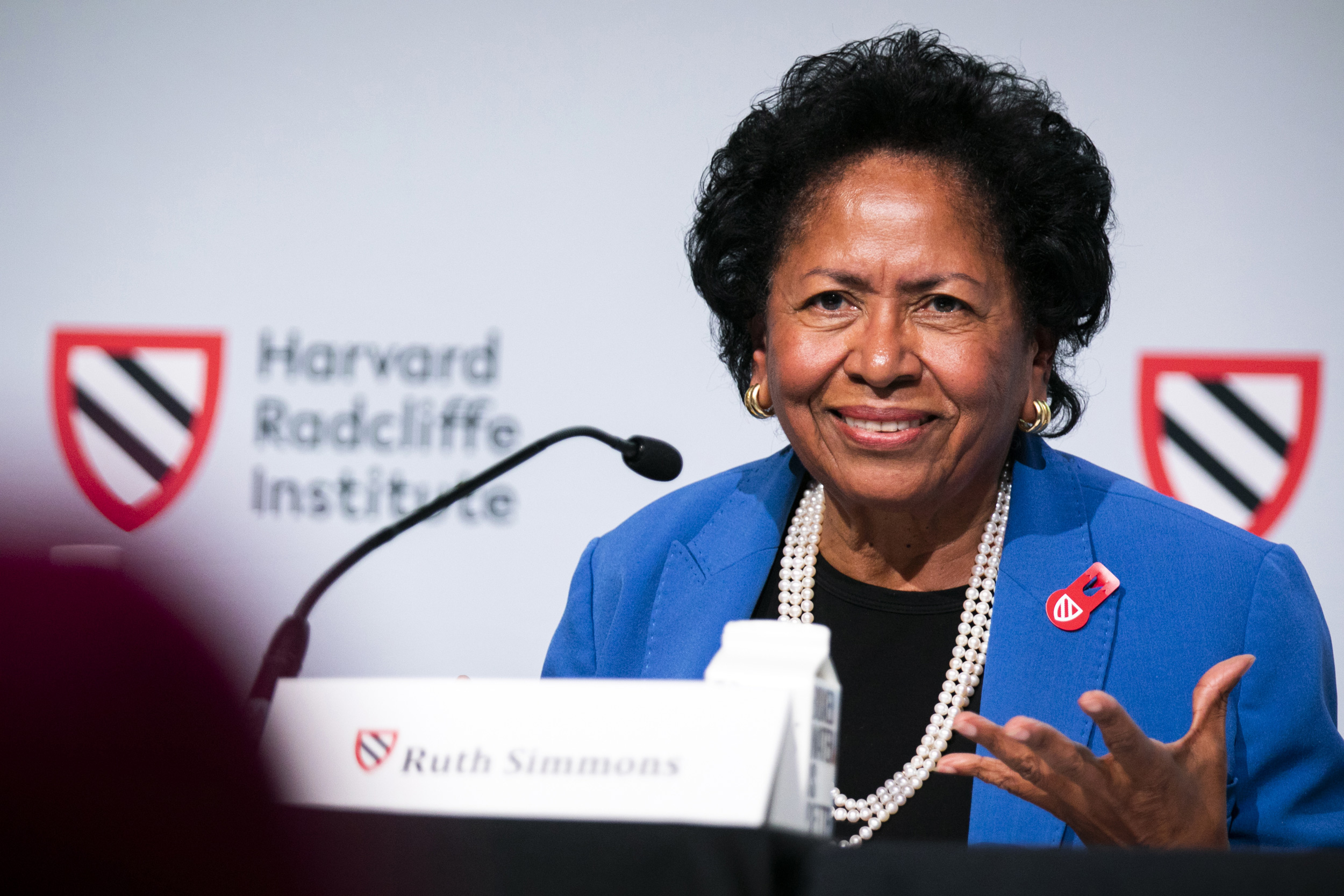
“Restoring the painful missing elements of these histories is, I believe, a necessary and heroic act that upholds standards of truth, fairness, and, frankly, moral behavior,” said Ruth Simmons, whose 2003 investigation of Brown University’s ties to slavery became a model for similar investigations.
Stephanie Mitchell/Harvard Staff Photographer
Kendi, a keynote speaker at the conference, applauded the members of the Presidential Committee on Harvard and the Legacy of Slavery, whose report, published Tuesday, documents both the history of slavery on campus and how wealth derived from the practice provided critical support for the University’s rise to prominence in the decades before the Civil War. The report also shows that leading faculty members supported race science and eugenics after the Civil War, providing an intellectual underpinning for the decades of discrimination and inequality that followed. Kendi also praised the researchers and activists who agitated for the University to thoroughly interrogate Harvard’s relationship with what he termed a “profitably horrible” institution.
Kendi traced one particularly damaging fiction to Harvard, through the work of the alumnus Edward Jarvis. Jarvis was a physician turned statistician who cited data in the 1840 Census to claim that rates of mental illness were higher among freed Northern Blacks than among enslaved Blacks in the South. Pro-slavery forces seized on his analysis as evidence that slavery was good for the enslaved. Jarvis eventually realized the data was flawed, but the damage had already been done.
Kendi’s speech closed a conference that opened with remarks by historian and legal scholar Tomiko Brown-Nagin, Radcliffe dean and chair of the Legacy of Slavery initiative, and Harvard President Larry Bacow, who launched the project in 2019.
“As I’ve often said over the course of Harvard’s reckoning with its legacy of slavery, we can’t dismantle what we do not understand, and we can’t understand contemporary injustice unless we reckon with our history,” Brown-Nagin said.
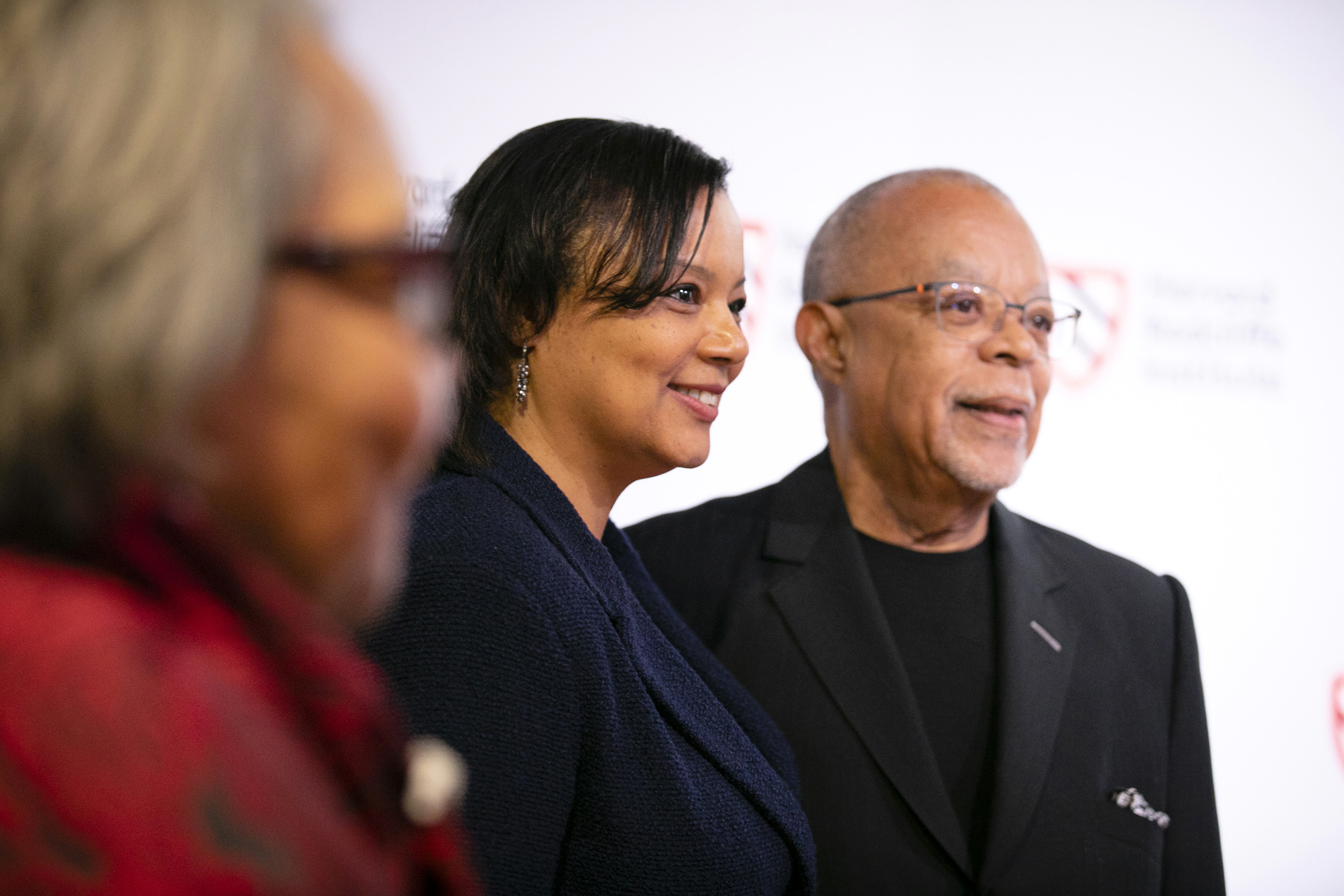
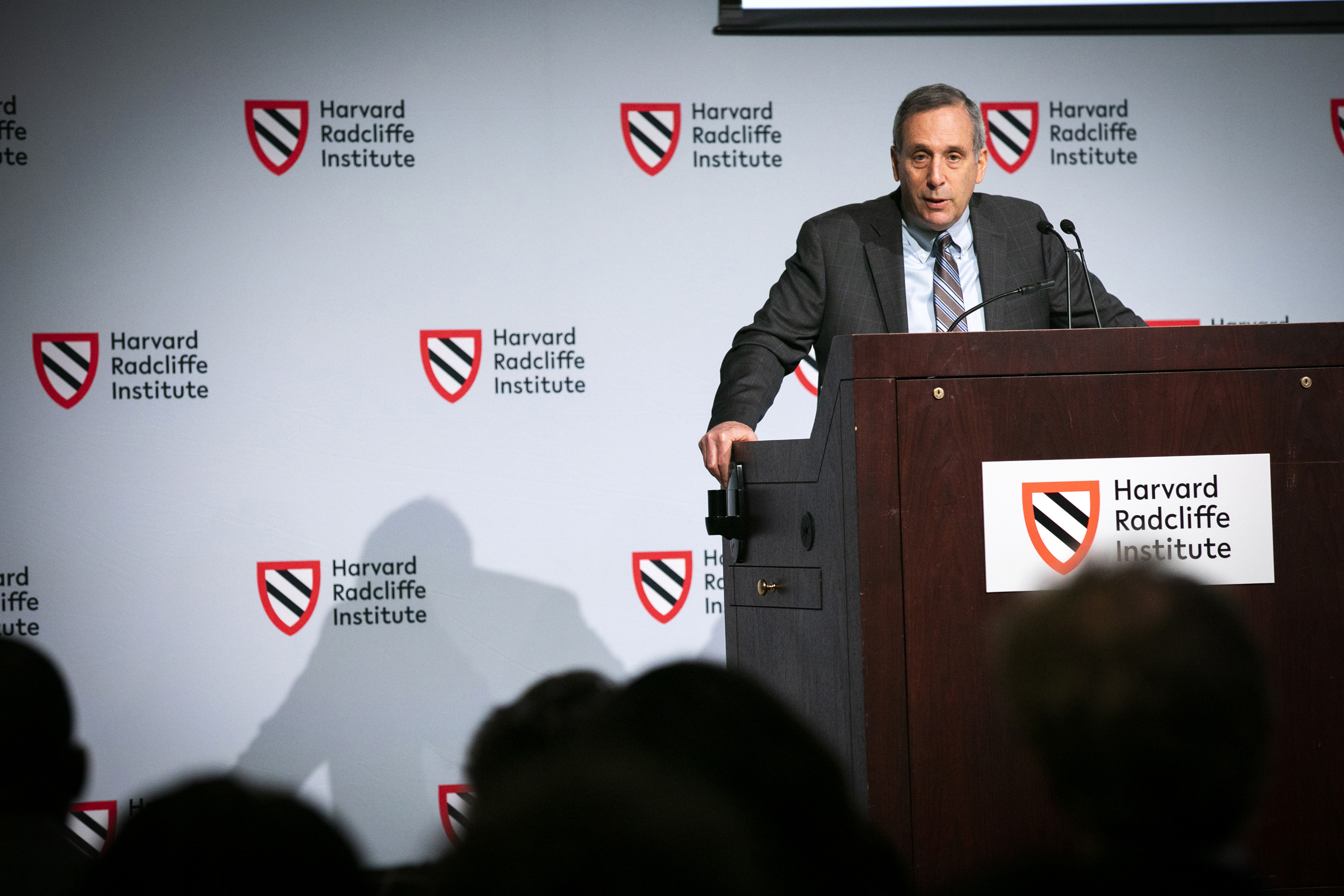
Tomiko Brown-Nagin (center), who chaired the Legacy of Slavery initiative, with morning speaker Henry Louis Gates Jr., Alphonse Fletcher University Professor and director of the Hutchins Center for African & African American Research. “My hope is those who succeed us will look back and judge us to have been champions of veritas — to have stood for truth and to have acted upon it,” said President Larry Bacow in his opening remarks.
Photos by Stephanie Mitchell/Harvard Staff Photographer
Bacow noted that he’s received hundreds of responses to the report since its release. Most have been positive, but the negative messages have only reinforced the importance of the effort, he said. “My hope is those who succeed us will look back and judge us to have been champions of veritas — to have stood for truth and to have acted upon it,” Bacow said.
He also expressed gratitude to Ruth Simmons, president of Prairie View A&M University in Texas, who, as president of Brown in 2003, kicked off an investigation of what proved to be extensive historical ties to slavery. The effort became a model for similar inquiries at other colleges and universities.
Delivering the first keynote of the conference, Simmons said that the Brown findings were released into a political environmental less hostile to truth than the one Harvard faces. But truth and reconciliation are important not only for the descendants of slaves but also for the future of the nation, she said, citing the warning contained in the history of post-Civil War “rituals of forgetting.” Those who justified these rituals, claiming they were necessary for healing, helped bury the “massive, massive moral ill” of slavery, Simmons said.
“The legacy of false or incomplete histories has left us with an acute sense of betrayal,” she said. “Restoring the painful missing elements of these histories is, I believe, a necessary and heroic act that upholds standards of truth, fairness, and, frankly, moral behavior.”
National unity is being “reshaped and redefined” today by corporations, nonprofits, newly diverse communities, and others, according to Simmons. The extent and success of these endeavors will depend on historical inquiries like those undertaken by Brown, Harvard, and other institutions, she said.
“In that sense the story of slavery in the United States is really still being written,” Simmons said.



